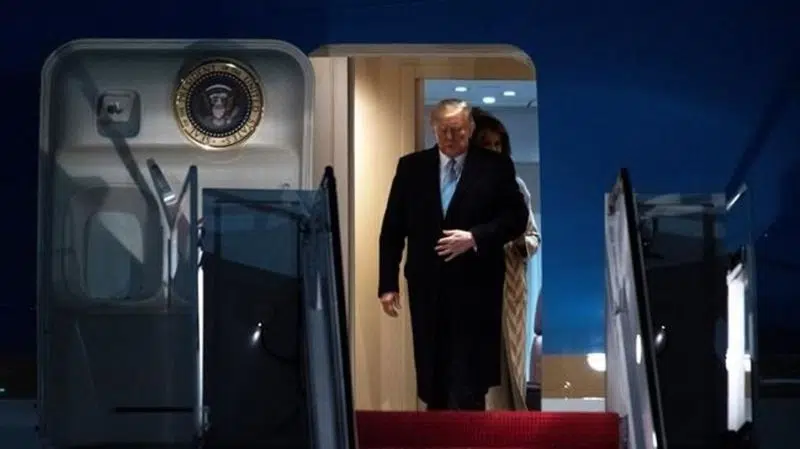
Trump warns of sanctions if Iraq tries to expel U.S. troops
WASHINGTON — President Donald Trump insists that Iranian cultural sites are fair game for the U.S. military, dismissing concerns within his own administration that doing so could constitute a war crime under international law. He also warned Iraq that he would levy punishing sanctions if it expelled American troops in retaliation for a U.S. airstrike in Baghdad that killed a top Iranian official.
Trump’s comments Sunday came amid escalating tensions in the Middle East following the killing of Gen. Qassem Soleimani, the head of Iran’s elite Quds force. Iran has vowed to retaliate and Iraq’s parliament responded by voting Sunday to oust U.S. troops based in the country.
Trump first raised the prospect of targeting Iranian cultural sites Saturday in a tweet. Speaking with reporters Sunday as he flew back to Washington from his holiday stay in Florida, he doubled down, despite international prohibitions.
“They’re allowed to kill our people. They’re allowed to torture and maim our people. They’re allowed to use roadside bombs and blow up our people. And we’re not allowed to touch their cultural sites? It doesn’t work that way,” Trump said.


